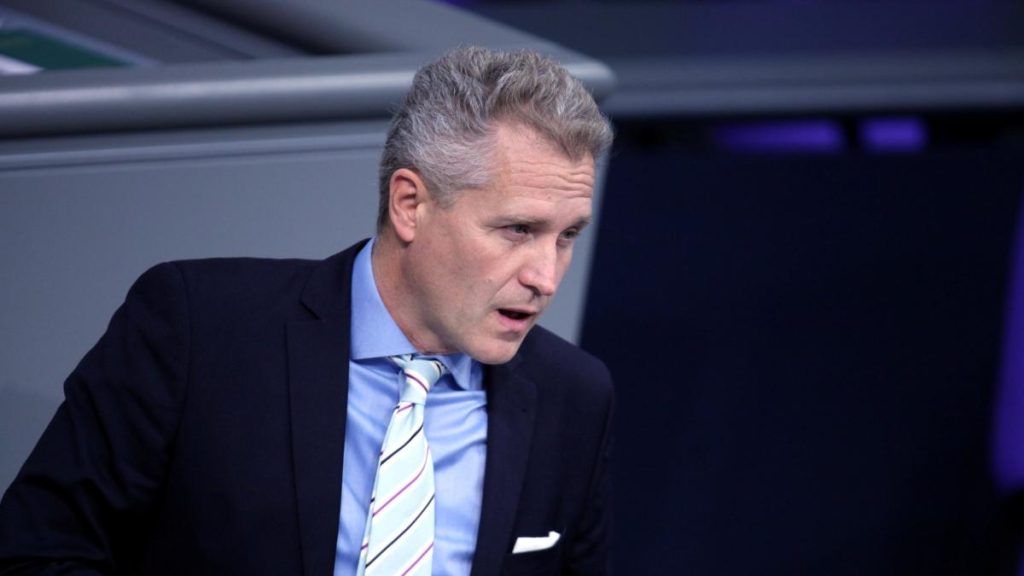The top news story about Petr Bystron, an AfD politician, involves allegations of receiving money from Russia. AfD politician Maximilian Krah has called for Bystron to refrain from campaign appearances until the allegations are clarified. Bystron denies any wrongdoing. The AfD is discussing a possible ban on Bystron’s campaign appearances until the allegations are resolved, with a decision expected to be made by the party’s board. The Czech news portal “Denik N” reported on alleged evidence of Bystron receiving funds from Russia, but did not provide details. Bystron has been asked by AfD officials to respond to the accusations.
The allegations against Bystron are related to the pro-Russian network known as “Voice of Europe.” Last week, the Prague government decided to include operators and individuals associated with the platform, such as Putin confidant Viktor Medvedchuk, on a national sanctions list. Bystron’s name was reportedly mentioned during this decision-making process, with claims of audio recordings as evidence against him. Bystron’s interviews with “Voice of Europe” have featured AfD politicians Maximilian Krah and himself, who are both leading candidates on the AfD’s European election list. Krah denied receiving payment for the interviews following reports of Czech sanctions.
In response to the request for a written statement from AfD officials, Bystron stated that it is normal and correct for party colleagues to seek information firsthand amid media reports. However, he emphasized that the allegations against him remain unproven and unfounded, calling for the Czech intelligence service to release the alleged recordings for clarity. Bystron mentioned plans for a personal meeting with the party leadership after Easter to discuss the situation further. Despite the controversy surrounding him, Bystron remains steadfast in his denial of any misconduct and is eager to address the accusations directly with party members.
The internal debate within the AfD over Bystron’s involvement with Russia highlights the party’s efforts to address allegations that could impact its political image. Maximilian Krah’s call for Bystron to suspend campaign activities until the accusations are resolved underscores the seriousness of the situation. Bystron’s prominent position as a top candidate on the AfD’s European election list adds to the significance of the allegations against him. The party’s handling of this issue, including the potential decision to ban Bystron from campaigning, will be closely monitored by observers and the public.
The situation involving Petr Bystron reflects broader concerns about foreign influence in German politics, especially in light of accusations of Russian interference in elections worldwide. The implications of Bystron’s alleged ties to Russia, as well as the AfD’s response to these claims, could have far-reaching consequences for the party’s credibility and standing among voters. By addressing these allegations transparently and decisively, the AfD aims to maintain its integrity and reputation ahead of the upcoming European elections. The outcome of this internal debate will shape the party’s narrative and public perception moving forward, potentially impacting its electoral success.















